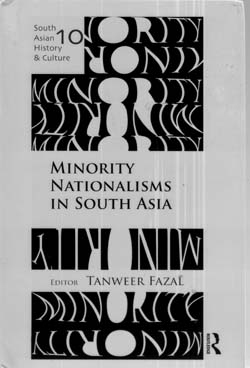None of the ideas/ideologies of the modern age have aroused so much passion and emotion as has ‘nation-statism’. Despite the fact that it has caused unprecedented human tragedy in the form of genocide, displacement, dispossession, destructions and devastations; and despite the claims of its demise in the face of globalization, the nation-state continues to remain a dominant socio-political frame within which human beings organize themselves. One of the reasons for it is obviously the fact that the nation-state creates an identity individuals cannot live without.
Undeniably, national identity overrides all other identities, however important they may be, but the nation-state is not the only source of identification for it remains far from constituting a simple and homogeneous block of space. In spite of having great mobilizing power and possessing the ability to wash over micro identities, nation-states are ‘contested’ spaces; representing a complex set of relationships between local, regional and national levels of social practices and spatial imaginations.

